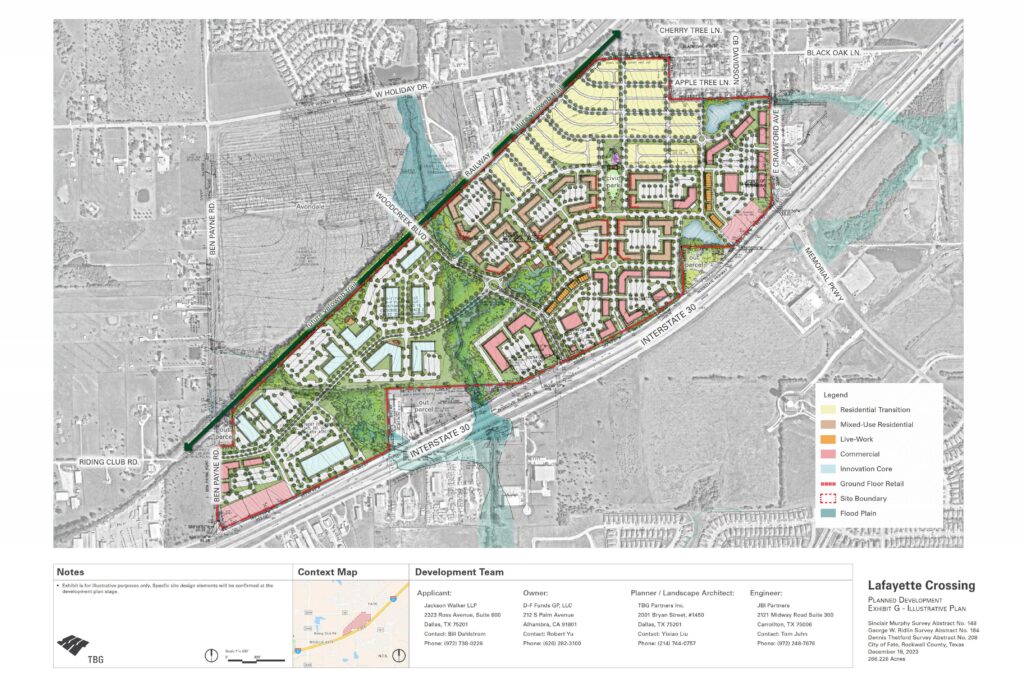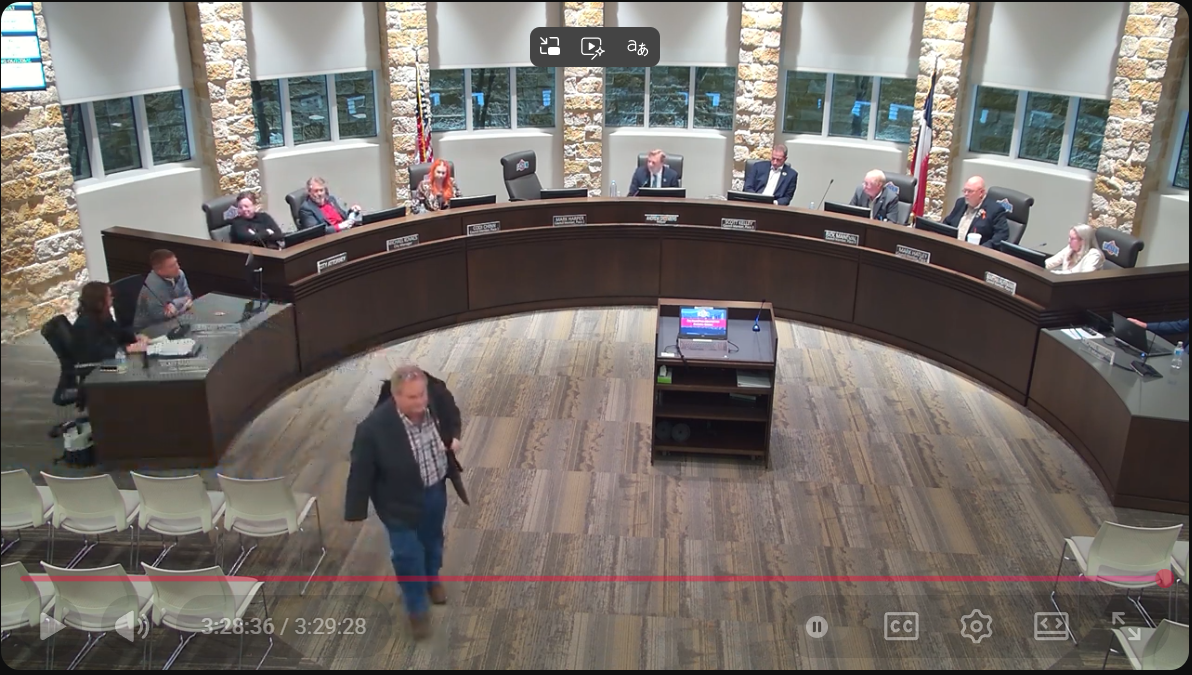
Facebook Groups: Censorship Disguised as Civility
In a world that cherishes free expression and the exchange of diverse ideas, we find ourselves grappling with a recurring issue in digital communities: censorship masked as civility. Facebook groups and similar online platforms, designed to foster open dialogue and communication, are increasingly becoming battlegrounds where the principles of free speech are under siege.
Across the virtual landscape, it’s crucial to recognize that every human being has formed within them an innate bias. These biases shape our perspectives and influence our actions, even when they remain unspoken. Yet, good stewards of democracy will acknowledge this inherent bias and intentionally take steps to allow others to voice their dissenting opinions. This recognition and willingness to embrace diversity of thought are essential for the health of any democratic society.
However, sometimes in these digital communities we often find administrators who wield the power to silence opposition, and they do so with an iron fist. These individuals operate with hidden agendas that they keep concealed from their members but exhibit unmistakably through their acts of censorship. This pattern raises fundamental questions about the values we uphold in our interconnected world and the role of digital spaces in shaping our collective discourse.
Communities of all kinds exist in the online sphere of Facebook, each with its own set of rules and guidelines for engagement. Typically, these rules aim to create a respectful and inclusive environment for members. However, when administrators harbor their own undisclosed biases, these well-intentioned rules can become tools for suppressing dissenting voices.
The notion of “Be Kind and Courteous” and “No hate speech or bullying” is a common refrain in these digital spaces. These principles appear to encourage positive interactions and safeguard against harmful behavior. However, when administrators, influenced by their hidden biases, use these guidelines to stifle criticism or controversial discussions, they inevitably contribute to the societal decay of democracy.
Sometimes, administrators see themselves as the saviors of civility. They earnestly believe that by attempting to maintain a veneer of “civil” discourse and stopping hate speech, they are fulfilling their duty to create a harmonious online community. However, they fail to comprehend that in their zeal to preserve a semblance of politeness, they become the purveyors of an even greater hate: censorship.
Censorship, often carried out under the banner of promoting civility, can have dire consequences for the democratic spirit. The suppression of dissenting voices and differing opinions not only curtails free expression but also fosters an environment where conformity and groupthink prevail. This stifling of diversity of thought not only undermines democracy but also creates a breeding ground for frustration and resentment among members who feel silenced.
At the Fate Tribune, our goal is to expose corruption and false liberal ideology wherever we may find it. We are stewards of the truth for the benefit of our fellow citizens of Fate. When a Facebook group censors one of our postings, they are not only silencing a debate but, in a much more destructive way, they are preventing the dissemination of ideas and knowledge that citizens need in order to make good decisions in the election of their leaders. The exposure of corruption and hidden leftist agenda of our elected is a necessary component of democracy… and yes, there is plenty of corruption and hidden agenda to be found in Fate.
The real issue arises when administrators, driven by their concealed biases or their misguided belief in their role as saviors of civility, use these guidelines to suppress views that do not align with their own agenda or their notion of civility. This manipulation of the rules obstructs open dialogue and, in turn, stifles the diversity of voices that digital communities should embrace.
In our interconnected world, the potential for bias and manipulation looms large. Administrators with their own biases can inadvertently—or sometimes deliberately—obstruct open dialogue. When this happens, digital communities risk losing their credibility and their ability to foster genuine discourse.
To combat this trend, it is imperative for individuals to be vigilant about their digital engagements. Members of these online communities should actively seek alternative platforms where their voices can flourish without fear of censorship driven by hidden biases or a misguided quest for civility. There are numerous forums that prioritize open discussion and inclusivity, where diverse viewpoints are celebrated, not stifled.
The battle for free expression in digital communities is a reflection of broader societal struggles over the principles of democracy, accountability, and free speech. As we navigate this evolving landscape, we must remember that the values we hold dear in our community should also extend to the digital realm. True dialogue and progress are only possible when the exchange of ideas is open, unrestricted, inclusive, and free from the hidden agendas of biased administrators and the misguided notions of civility that lead to censorship. Those who silence opposition, whether due to their biases or their belief in their role as saviors of civility, are inevitably contributing to the societal decay of democracy, and it is our collective responsibility to uphold the principles of free expression and diversity of thought.

Fate, TX
CyberSquatting City Hall: How City Claimed a Developer’s Domain

How Fate registered a developer’s project domain after seeing it in official plans, then fought to keep that fact hidden
FATE, TX – Cities are expected to regulate development, not steal its name.
Records obtained by Pipkins Reports show the City of Fate registered the domain name of a private development, lafayettecrossing.com, while actively working with the developer who had already claimed that name in official plans. The move, made quietly during a heated approval process, raises serious questions about whether Fate’s city government crossed from partner to predator, taking digital ownership of a project it was supposed to oversee with neutrality and good faith… and depriving the developer of their rights to domain ownership.
What followed, attempts to conceal the purchase, shifting explanations from city officials, and a documented pattern of advocacy on behalf of the developer, suggests the domain registration was not an accident, but part of a broader effort to control the narrative around one of the most divisive projects in the city’s history.
A site plan submitted by the developer, D-F Funds GP, LLC, led by Robert Yu, shows the project title “Lafayette Crossing” clearly identified in the title block on December 20, 2023. The document was part of the city’s official development review for the controversial project at the corner of I-30 and Highway 551.

Less than two months later, on February 7, 2024, the City of Fate registered the domain lafayettecrossing.com, Invoice #116953461, for $12.
Domain records confirm the registration date, with the domain set to expire on February 7, 2027. By that point, Lafayette Crossing was already the established name of the project, used by the developer and embedded in official plans circulating within City Hall.
This was not a coincidence. The city had the plans from the developer. Their were extensive talks regarding the project. Then the city registered the domain without the knowledge of the developer. This is known in the industry as, “Cybersquatting.”
The development, originally referred to as the “Yu Tract,” became known as Lafayette Crossing as it moved through the approval process. The project ignited intense public opposition over density, traffic congestion, infrastructure strain, and the long-term direction of Fate’s growth. Despite sustained resistance and packed council chambers, the city council approved the project.
The political fallout was severe. In the elections that followed, four council members and the mayor were replaced, an extraordinary level of turnover that reflected deep voter dissatisfaction. Two members from that Council, Councilman Mark Harper and Councilman Scott Kelley, remain, but are up for reelection this May.
That context matters, because the domain registration did not occur in isolation. It occurred amid a broader, documented pattern of city officials actively working to shape public perception in favor of the developer.
In February 2024, Pipkins Reports, then operating as the Fate Tribune, published an exposé based on internal city emails showing City Manager Michael Kovacs discussing strategies to “educate” the public about Lafayette Crossing. In those emails, Kovacs suggested deploying what he referred to as “Fire Support,” a term used to describe both paid and unpaid advocates brought forward to counter citizen opposition and astroturf public support for the project.
That reporting revealed a city government not merely responding to public concerns, but actively attempting to manage and counter them.
In a later publication, Pipkins Reports (Fate Tribune) documented the City of Fate’s hiring of Ryan Breckenridge of BRK Partners, engaging in what records showed to be a coordinated public relations effort aimed at improving the project’s image and swaying public sentiment. The campaign was presented as informational, but residents viewed it as advocacy on behalf of the developer, funded with public resources.
It was within this environment, where city staff had already aligned themselves publicly and privately with the developer’s interests, that the city registered the lafayettecrossing.com domain. Yet that fact remained hidden until PipkinsReports.com submitted an Open Records Request on September 30, 2025, seeking a list of all domains owned by the city.
Rather than comply, the City of Fate objected. On October 14, 2025, officials asked the Texas Attorney General’s Office for permission to withhold the records, citing “cybersecurity” concerns.
On January 6, 2026, the Attorney General rejected that claim and ordered the information released. The city complied on January 20, 2026.
In addition to the lafayettecrossing.com domain, the records revealed the city owns numerous domains tied to redevelopment and branding initiatives, including:
- FateTX.gov
- DowntownFate.com
- FateFoodHaul.com
- FateMainStreet.com
- FateStationHub.com
- FateStationMarket.com
- FateStationPark.com
- FateStationSpur.com
- OldTownFate.com
- TheHubAtFateStation.com
- TheSpurAtFateStation.com
- ForwardFate.com
Most clearly relate to city-led initiatives. LafayetteCrossing.com stands apart because it mirrors the established name of a private development already proposed, named, and publicly debated.
When questioned via email, Assistant City Manager Steven Downs initially suggested the domain purchase occurred long before his involvement and downplayed any potential issues. When we revealed documents to show Downs was actively engaged with the project at the same time the Lafayette Crossing name entered the city’s official workflow, his story changed.
In follow-up correspondence, Downs acknowledged he was aware of the project name, while placing responsibility for the domain purchase on former Assistant City Manager Justin Weiss. Downs stated he did not know whether the developer was aware of the purchase and said he was not concerned about potential liability.
What remains unexplained is why the city registered the domain at all, knowing it belonged to a private project, and why it attempted to keep that information from the public.
Opinion
Viewed in isolation, a $12 domain purchase might seem trivial. Viewed in context, it is not.
When a city that has already worked to astroturf support, hire public relations firms, and counter citizen opposition also quietly registers a developer’s project domain, then attempts to conceal that information from the public, the line between regulator and advocate disappears.
The question is no longer whether the city knew the name. The record shows it did.
The question is why a city government so deeply invested in selling a controversial project to its residents felt the need to take ownership of the project’s digital identity as well.
Control of messaging, control of perception, and control of narrative are powerful tools. Sometimes it is equally as important to control what is not said.
Council
Fate City Council Votes to Release Secret Recordings

Councilman Mark Harper walks out of meeting before adjournment.
FATE, TX – The Fate City Council voted late Monday night to waive deliberative privilege, opening the door to the public release of secret audio recordings that may have driven a recall election against Councilwoman Codi Chinn. The decision came after hours of public criticism, procedural friction, and a lengthy executive session with legal counsel.
The meeting, held Monday, February 2, was streamed live by the city and is available on YouTube at: https://www.youtube.com/live/zQVN0i-d8C0 (Embedded Below)
(Source: City of Fate, official meeting broadcast)
Timeline for Readers
- 00:33:52 – Public comments begin, largely focused on the recall election of Councilwoman Codi Chinn.
- 00:56:10 – Councilman Harper interrupts public Comment.
- 00:57:00 – Councilman Harper interrupts public Comment.
- 00:58:00 – Councilman Harper interrupts public Comment.
- 02:21:00 – Executive Session – Council enters closed session to consult with legal counsel.
- 03:22:52 – Council reconvenes in open session.
- Primary motion – Council votes to “waive deliberative privilege”, allowing release of disputed audio recordings.
Public Comment and Visible Strain
Public comments began just after the 33 minute mark and quickly centered on the recall election. Speaker after speaker questioned the conduct of city officials and demanded transparency regarding audio recordings that have circulated privately but remained unavailable to the public.
During one speaker’s remarks, critical of Councilwoman Chinn, procedural tension became visible. Three separate times, Councilman Mark Harper interrupted to remind Mayor Andrew Greenberg that the speaker had exceeded the three-minute time limit. Each time, Mayor Greenberg thanked Harper for the reminder, then directed the speaker to continue.
The exchange stood out. While council rules clearly limit speakers to three minutes, the mayor’s repeated decision to allow the speaker to proceed suggested an effort to avoid the appearance of silencing criticism during a highly charged meeting.
Clarifying the Recordings
Contrary to some early assumptions, the audio recordings at issue were not recordings of executive sessions. Instead, they are one-party consent recordings, the existence of which has been previously reported and alluded to on Pipkins Reports. Their precise origin has not been publicly detailed, but their contents have been referenced repeatedly by both supporters and critics of the recall effort.
Behind Closed Doors
Following the public meeting, the council entered executive session to consult with legal counsel. After about an hour, members returned to open session at approximately 3:22:52 .
The primary motion coming out of that session was to “waive deliberative privilege“. The effect of the vote was to remove a legal obstacle to releasing the secret audio recordings that have been at the center of the controversy.
No excerpts were played, and no conclusions were announced. The council did not rule on the legality of the recordings, nor did it weigh in on the merits of the recall election itself.
Why the Vote Matters
The decision does not resolve the recall of Councilwoman Chinn. It does not validate or refute claims made by either side. What it does is shift the debate away from rumor and secondhand accounts.
According to guidance from the Texas Municipal League, governing bodies may waive certain privileges when transparency is deemed to serve the public interest, particularly when litigation risk is balanced against public trust (Texas Municipal League, Open Meetings Act resources).
Opinion and Perspective
The council’s action was a necessary step. Secret recordings, selectively referenced and strategically leaked, undermine confidence in local government. So does a refusal to confront them directly.
Transparency is not about protecting officials from embarrassment. It is NOT the job of the council to assist the city in concealing information that may be used against it in legal proceedings when the City Manager, or Councilmen, may have done bad things. It is about protecting citizens from manipulation. If the recordings exonerate those involved, their release will restore credibility. If they raise concerns, voters deserve to hear them unfiltered before making decisions in a recall election.
Monday night in Fate did not end the controversy. It ended the excuse for keeping the public in the dark.
Election
Bob Hall Faces Old Allegations as Supporters of His Opponent Stir Controversy in Rockwall

ROCKWALL, TX — Texas State Sen. Bob Hall appeared before voters at Rockwall County’s Final Friday Night Forum, on Friday. The appearance renewed online criticism from supporters of his primary challenger which brought attention back to a decades-old allegation from a former marriage and also to social-media comments allegidily attributed to Hall’s wife.
The renewed discussion did not stem from new legal filings, court actions, or investigative reporting. Instead, it followed social-media posts by individuals publicly supporting Hall’s opponent, Jason Eddington, including Fate City Councilwoman Codi Chinn, whose sharply worded statements have drawn attention for both their substance and tone.
The Forum and the Race
The forum was hosted by Blue Ribbon News in partnership with the Rockwall County Republican Party, and held at the Rockwall County Courthouse. It marked the final event in a series intended to give Republican voters an opportunity to hear directly from candidates ahead of the March primary.
Other candidates in attendance included:
- Rockwall County Judge
- Frank New
- Scott Muckensturm
- County Commissioner, Precinct 4
- John Stacy
- James Branch
- Lorne Megyesi
- Justice of the Peace, Precinct 2
- Victor Carrillo
- Chris Florance
Pipkins Reports could find no official transcript or video of the forum. According to available coverage, the event proceeded without public discussion of personal controversies, and no candidate addressed the matter from the stage.
Background on the Allegations
The most damaging allegations currently being recirculated date back to divorce proceedings in Florida in the early 1990s, during which Hall’s former wife, Jane Hall, made claims in court filings alleging physical, verbal, and sexual abuse during their marriage.
The allegations, raised during a contested divorce, as they often do. Bob Hall has denied the allegations. No criminal charges were filed. No court ruled against Hall or issued a finding of abuse. The filings did not result in convictions, injunctions, or adverse judgments.
The allegations became publicly discussed during Hall’s first Senate campaign in 2014 and have resurfaced intermittently during contested elections. Their latest reappearance coincides with the current Republican primary and has been driven by individuals openly advocating for Hall’s opponent.
Explicit Attribution and Political Context
Following the January 30 forum, Fate City Councilwoman Codi Chinn, who has publicly endorsed Jason Eddington, posted a statement on social media criticizing Hall and urging Republican voters to support Eddington.
In her post, Chinn wrote:
“Senator Bob Hall I expect you will be making a statement issuing an apology on behalf of your wife for body shaming a woman simply because you don’t ideologically agree with her. These comments are shameful and your silence is deafening. Being Republican shouldn’t mean being small minded. I hope Republican Primary voters will pick the true Conservative Jason Eddington, Candidate for Texas Senate, District 2!”
Critics of Chinn, including some local Republican activists, say the post reflects what they describe as a pattern of caustic and confrontational rhetoric directed at individuals she opposes politically. It’s ironic that Chinn requests accountability for language of others, while she herself asks for forgiveness of her digressions in her bid to not be recalled. Supporters of Chinn, by contrast, characterize her comments as blunt advocacy and a willingness to publicly challenge those with whom she disagrees.
Amplification by a Political Social Media Page
On January 31 at 10:57 p.m., the Facebook page Rockwall County News First published a post calling on the Rockwall County Republican Party to condemn comments attributed to Hall’s wife. The page credited Codi Crimson Chinn as the source of screenshots included in the post.
The post stated:
“We hope that Rockwall County Republican Party will join us in condemning Senator Bob Hall’s wife in her comments.”
The screenshots included in the post purport to show comments written by Kay Hall, Senator Hall’s wife. The screenshots have not been independently authenticated by this publication. According to the screenshots, the comments attributed to Kay Hall read:
“Oh, yes, so disgusting to see Jill get up an speak. She and all of the TFRW little people are in their element. Wish I had recorded her speech, or even more wish I had stood up in the room to tell everyone how she got the Democrats to vote for her in the election. The pictures are very flattering to her because she has gained weight and really looked aged. I am sitting across from Bob near the podium. too, close!!!”
As of publication, neither Senator Hall nor his wife has publicly confirmed the authenticity of the screenshots or issued a statement regarding the comments.
Hall’s Position and Current Status
Hall has not publicly addressed the social-media posts and did not respond to our request for comment. He has previously stated, during earlier campaigns, that efforts to revive allegations from his former marriage are politically motivated and unrelated to any legal findings or his conduct in office.
Hall is currently married to Sarah Kay Smith Hall, with whom he has three children. There are no legal actions or criminal allegations involving his current marriage. The current controversy centers on online posts circulated by political opponents and their supporters.
Conclusion
The Final Friday Night Forum was intended to focus voter attention on policy differences among Republican candidates. In the days following the event, however, the race shifted toward personal disputes fueled by online posts from supporters of Hall’s challenger, including commentary that some observers describe as emblematic of an increasingly sharp-edged political style.
As the March primary approaches, voters in Senate District 2 must weigh not only policy and legislative records, but also the motivations and methods used by campaigns and their advocates. Whether the renewed criticism is viewed as relevant scrutiny or as opposition-driven escalation remains a question for the electorate to decide.


You must be logged in to post a comment Login